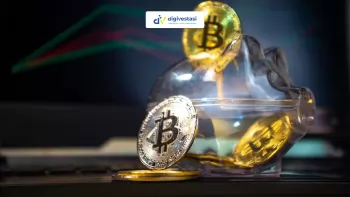
Crypto News
Whale Activity on Binance Surges! Average Bitcoin Spot Orders Hit US$1.96 Million
/index.php
Crypto News - Posted on 04 November 2025 Reading time 5 minutes

Japan Prepares to Allow Traditional Banks to Enter the Crypto Market, FSA Plans Major Regulatory Reforms
Japan is gearing up for a major transformation in its financial system. The Financial Services Agency (FSA), the country’s financial regulator, is reportedly reviewing a series of regulatory reforms that would allow traditional banks to purchase and hold cryptocurrencies such as Bitcoin as part of their investment portfolios.
This move is seen as a strong signal that Japan is shifting away from its historically conservative stance on digital assets toward a deeper integration between the conventional banking sector and the rapidly growing crypto ecosystem.
Regulatory Reform Under Development
According to the FSA’s latest report, current Japanese banking laws still prohibit banks from directly owning cryptocurrencies or operating as digital asset service providers. However, under the proposed new framework, banks and their securities subsidiaries would be permitted to buy, hold, and trade cryptocurrencies in the same manner they handle traditional assets such as stocks or bonds. Additionally, securities subsidiaries of major banking groups could register as Crypto Asset Service Providers (CASPs), enabling them to directly offer crypto trading and exchange services to clients. The FSA aims to implement these reforms by late 2025 or early 2026, following legislative approval and the drafting of technical regulations.
Rising Crypto Adoption in Japan
Japan’s cryptocurrency market has shown remarkable growth in recent years. As of February 2025, the country recorded over 12 million registered crypto accounts, more than triple the number from five years earlier. Meanwhile, on-chain transaction volumes between July 2024 and June 2025 surged by approximately 120% year-over-year, reflecting accelerating adoption among both individual and institutional users.
The nation’s three largest banking groups Mitsubishi UFJ Financial Group (MUFG), Sumitomo Mitsui Financial Group (SMFG), and Mizuho Financial Group — are also developing yen-backed stablecoins designed for direct integration into their banking systems.
Implications and Challenges
If enacted, the reforms would enable Japanese bank customers to buy and store digital assets directly through their everyday banking platforms, eliminating the need to rely on independent crypto exchanges. This shift is expected to enhance accessibility, trust, and transparency in digital asset trading. However, the FSA emphasized the need for risk mitigation. The regulator plans to introduce exposure limits, minimum capital requirements, and mandatory risk disclosure rules for retail investors to safeguard the national financial system from the potential volatility of crypto markets.
Toward Crypto–Banking Integration
If approved, this policy would position Japan as a pioneer in merging traditional finance with digital assets in Asia. With robust user adoption and support from major financial institutions, Japan could become a global model for implementing balanced crypto regulations that promote innovation while ensuring financial stability.
Under the FSA’s increasingly progressive approach, Japanese banks are poised to evolve beyond traditional payment facilitators—transforming into active participants in the digital asset market, from investors to crypto trading service providers. This transformation marks a new era in Japan’s digital finance landscape, where the stability of the banking system meets the dynamic growth potential of the cryptocurrency economy.
What do you think about this topic? Tell us what you think. Don't forget to follow Digivestasi's Instagram, TikTok, Youtube accounts to keep you updated with the latest information about economics, finance, digital technology and digital asset investment.
DISCLAIMER
All information contained on our website is summarized from reliable sources and published in good faith and for the purpose of providing general information only. Any action taken by readers on information from this site is their own responsibility.